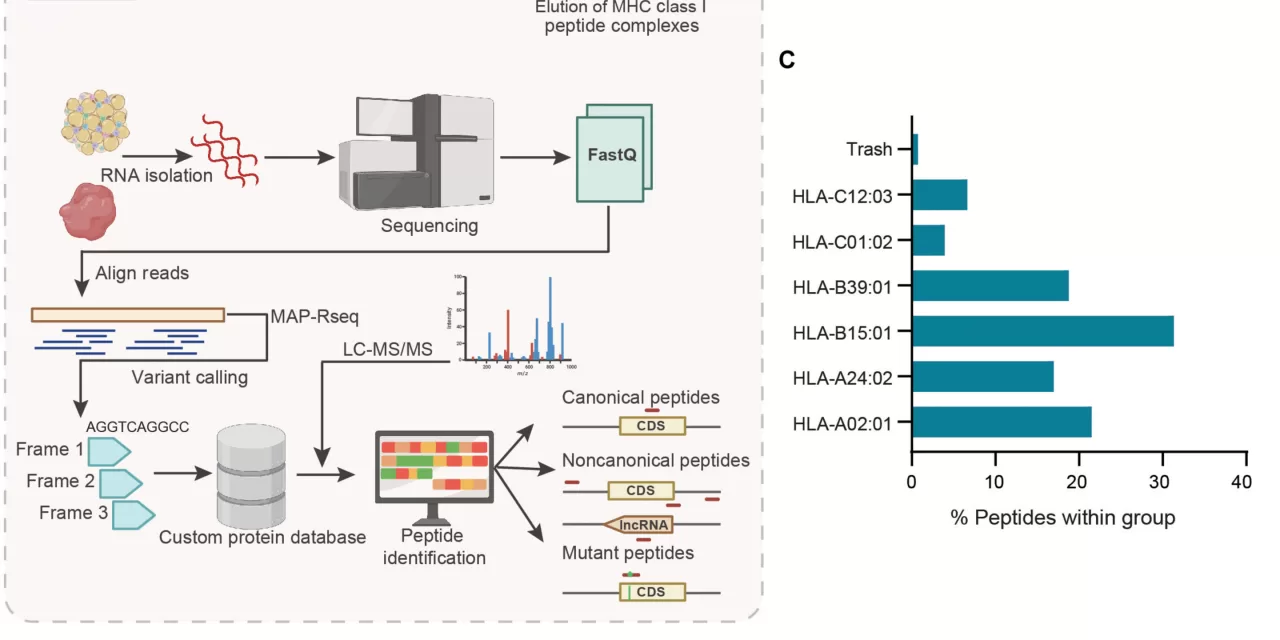Mayo Clinic Researchers Uncover Potential Breakthrough in Cancer Treatment
Mayo Clinic researchers have identified a new immunotherapy target, a cryptic antigen, which may significantly enhance the immune system’s ability to fight ovarian cancer. The findings, published in Science Advances, could lead to improved treatment strategies for this often-deadly disease.
Ovarian cancer is notoriously difficult to detect in its early stages due to limited symptoms, and it often remains unnoticed until it has metastasized. Once the cancer spreads, it becomes increasingly challenging to treat, with existing immunotherapies and checkpoint inhibitors offering only limited success.
Cryptic antigens are components of proteins, known as epitopes, that usually remain hidden from the immune system. These antigens may, however, be present in tumor cells, offering a novel approach for mobilizing the immune system to attack cancerous growths.
“These findings underscore the need to look at alternate sources of target antigens for ovarian cancer,” said Marion R. Curtis, Ph.D., senior author of the study and immunologist at Mayo Clinic Comprehensive Cancer Center. “Discovering tumor-associated antigens that T cells recognize is crucial for the success of immunotherapeutic approaches in ovarian cancer, where rapidly multiplying cancerous cells can invade and destroy healthy tissues.”
T cells are a crucial component of the immune system’s adaptive response, playing a key role in recognizing and combating specific targets, including infections and cancerous cells. In this study, researchers characterized tumor antigens derived from ovarian cancer using multi-omics approaches to assess their ability to stimulate an immune response. Multi-omics refers to the integration of multiple biological data sources, such as the genome, proteome, microbiome, and epigenome, to better understand disease mechanisms and improve detection, prevention, and treatment strategies.
Previous research focused on identifying newly formed antigens, known as neoantigens, but a prior study revealed that ovarian cancer samples rarely contain neoantigens, making them poor therapeutic targets. By shifting their focus to cryptic antigens, researchers may have uncovered a more promising avenue for immunotherapy.
The next phase of research will involve preclinical testing and clinical trials to assess the safety and efficacy of new immunotherapies and vaccines targeting these cryptic antigens. Additionally, researchers plan to conduct broader studies to determine the prevalence of cryptic antigen expression across different types of tumors, potentially expanding the applicability of this approach to other cancers.
For further details, refer to the study published by Remya Raja et al., titled Immunogenic cryptic peptides dominate the antigenic landscape of ovarian cancer, in Science Advances (2025). DOI: 10.1126/sciadv.ads7405.
Disclaimer: This article is intended for informational purposes only. It does not constitute medical advice or treatment recommendations. Patients should consult healthcare professionals for personalized guidance regarding ovarian cancer diagnosis and treatment options.












